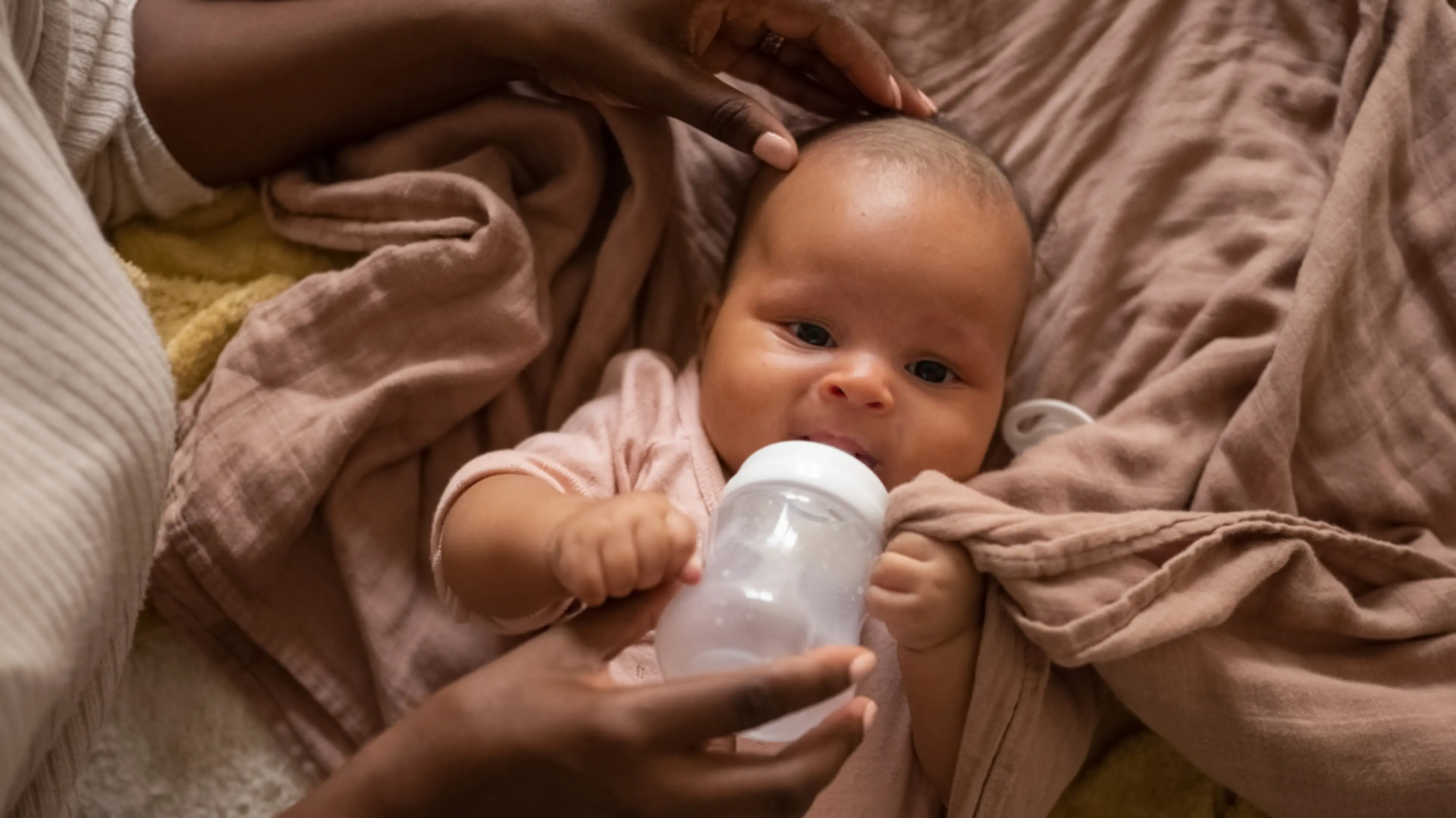In 2022, parents and caregivers were grappling with an unbelievable dilemma: how to feed their children. Abbott Nutrition, a major manufacturer of infant formula, issued a voluntary recall of its powdered formula due to bacterial contamination, while unsafe and unsanitary conditions forced a Michigan manufacturing facility to shut down temporarily. This led to a major shortage of available infant formula. By the end of May, the out-of-stock rate reached as high as 70%1 .
With Abbot’s formulas making up almost half of the market, the crisis left parents—especially those who relied on specialized formulas or used WIC2 —scrambling to find a way to feed their children.
“I had many moms contact me immediately about not being able to find formula for their baby,” says Erin Moore, a Nurse Practitioner and Certified Lactation Counselor, of her experience during that time. “I initially connected those who could not find their baby's formula with those who had extra. It worked out well, but parents needed and deserved more. I started a Facebook group where moms could ask for and send formula. I personally kept an eye out for formulas that were hard to find and shipped them to moms in need,” she shares.
By the beginning of 2023, formula stock had largely recovered to pre-recall levels. But while formulas are now appearing on store shelves with regularity, the scars are still there. According to Moore, there are still occasional gaps on the shelves, and certain specialty formulas can be harder to find.
But Andrea Kirschling, a Certified Lactation Counselor who specializes in combo feeding, remains optimistic about a post-formula shortage world. “If anything there are significantly more options now with previously imported formulas remaining on the US market. The brands newer to parents, like Aussie Bubs, Kendamil, ByHeart, and Bobbie (just to name a few), are now available in more ways—either in stores and/or expanding to multiple large grocery chains. In some ways I’d say it’s even better than the old ‘normal,’” she says.
One way that formula access has been boosted is by a change in government regulation. In May 2022, the FDA announced it would change its policy and begin to consider allowing infant formula manufactured for foreign markets to be imported3 into the United States.
Despite the current optimistic state of formula availability, parents who rely on formula to feed their children now, or those who might in the future, might still be wondering: will it happen again?
On that front, there is good news: parents can relax.
“There is now a demand to hold formula companies to the highest standards to keep our babies as safe as possible. If there is one positive thing that came out of the formula shortage, it is that it brought a wider variety of formulas to the US market that are FDA-reviewed,” Moore says. “In my opinion, this is one of the safest times to formula feed. Production has increased and safety standards are very high,” she shares.
As of early October 2023, the FDA has updated its compliance regulations for infant formula manufacturers. This creates more stringent regulations, including “the development of a Cronobacter prevention strategy, enhanced inspection activities, increased engagement with the infant formula industry, and by pursuing regulatory action when appropriate,” according to the FDA4 .
Congress is also taking steps to prevent another formula shortage, although the outcome of this is yet to be seen. Most recently, a bill5 was introduced in the House that would require formula manufacturers to notify the FDA within 24 hours of any potential supply disruptions, allowing a future recall to be proactively handled.
“Personally, I would feel confident exclusively formula feeding if it fit my family best,” Kirschling says. “Diversifying the market has helped significantly! Even if there is another manufacturing plant shutdown or recalls, we have a large number of similar products from other companies to offset the risk. Will it ever be 100% risk-free? Technically no. But for the average consumer, they have access to an entirely different formula market than before the shortage,” she says. Parents who feed their child a specialized formula may need to keep their guard up, but Kirschling explains that most of these products aren’t found on grocery store shelves, anyway.
While the odds are good that a formula shortage won’t be an issue anytime soon, concerned parents can still secure themselves against another incident. The solution isn’t to stockpile infant formula, though. “I encourage parents to keep around 2-4 weeks of formula on hand. If your baby only tolerates one formula or has special health needs, you may want to keep more,” Moore says.
Kirschling also recommends keeping two weeks of unopened formula available and explains how you prepare the formula can help safeguard your family from contaminated food at any time. “Powdered food products by nature cannot be sterilized—including formula. Parents can use a kettle to heat water to 158F/70C and have that water come into contact with the powder, this is the safest way to prepare infant formula,” she explains. The CDC recommends6 a similar process to kill germs, including Cronobacter.
And finally, don’t forget the importance of connecting with others. “It’s also always great to chat with other parents about feeding! Understanding how you feed differently can help you support other parents in your life. Regardless of how a family feeds or if there is another shortage, infant feeding requires a lot of mental and physical energy!” Kirschling says.
Plus, if the formula you need happens to be out of stock at your store, a community can have your back. “If you are still unable to find your desired formula, ask friends to look for it while they are shopping. You can also use local mom groups to see if others have seen it anywhere nearby,” Moore says.
The formula shortage of 2022 was a difficult time for parents who relied on infant formula to feed their children, but for now, caregivers can relax. With formulas back on shelves and new safeguards in place—like more stringent regulations and a wider range of formula brands to choose from—another shortage is unlikely.









